Zakarin signals intent on Giro d'Italia's first summit finish
Konyshev on Russian's chances and his teenage doping ban
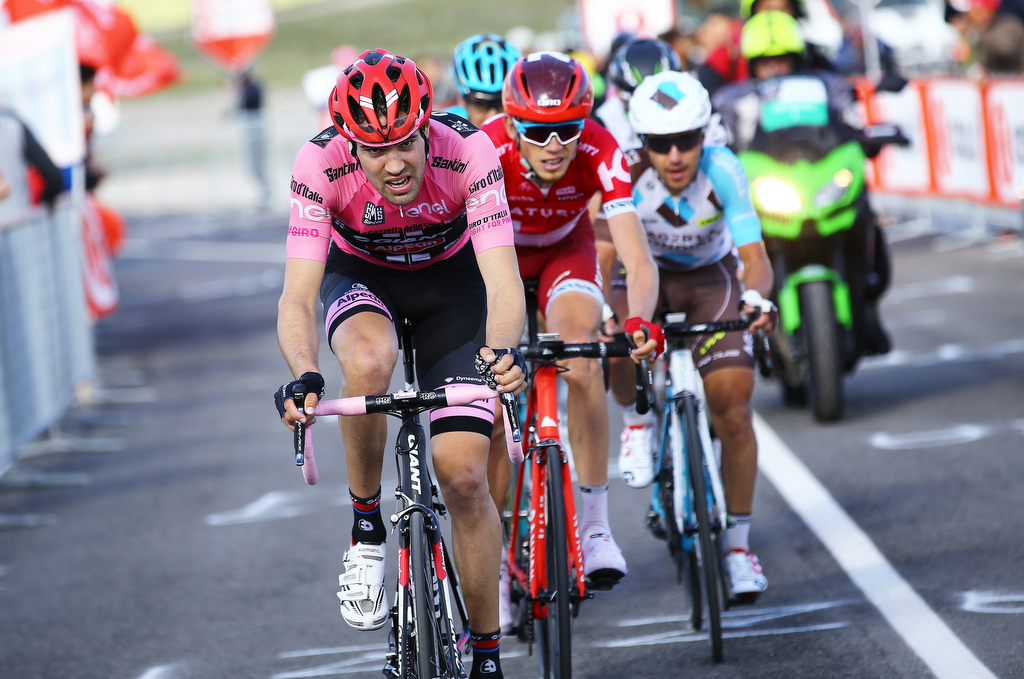
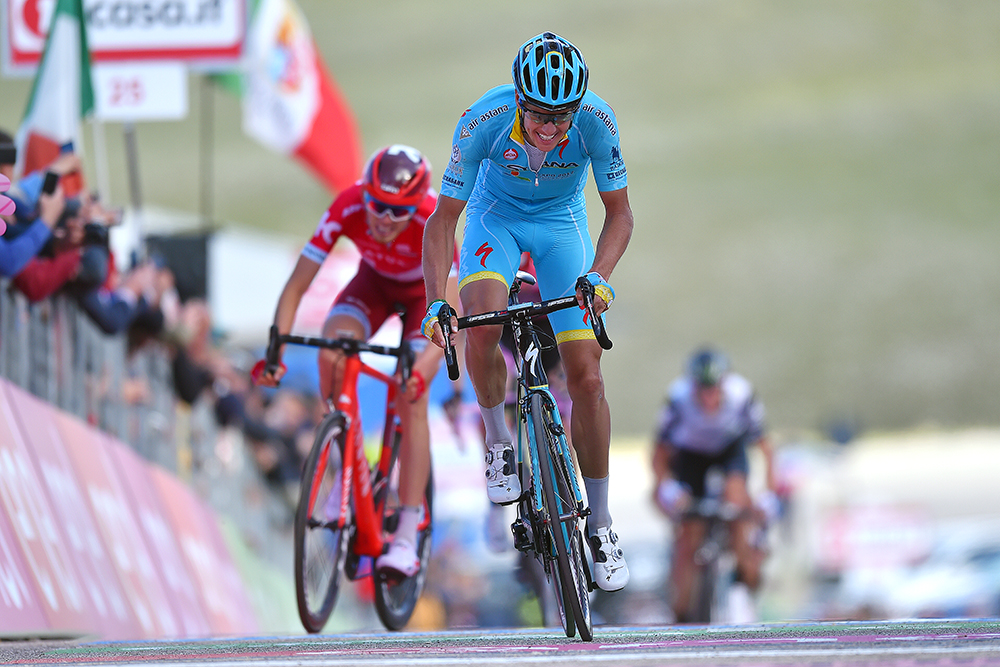
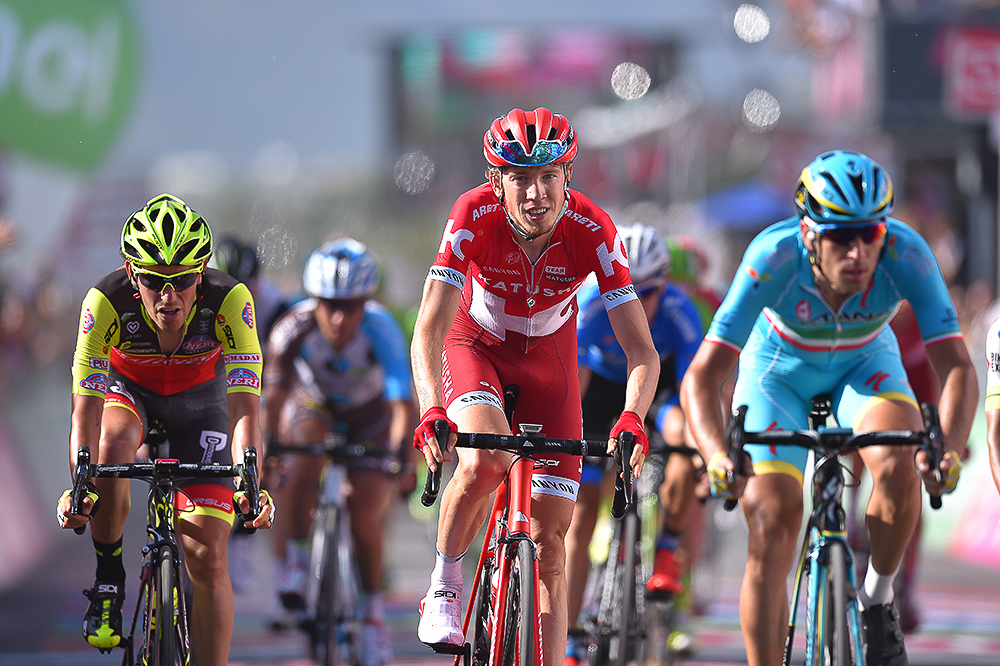
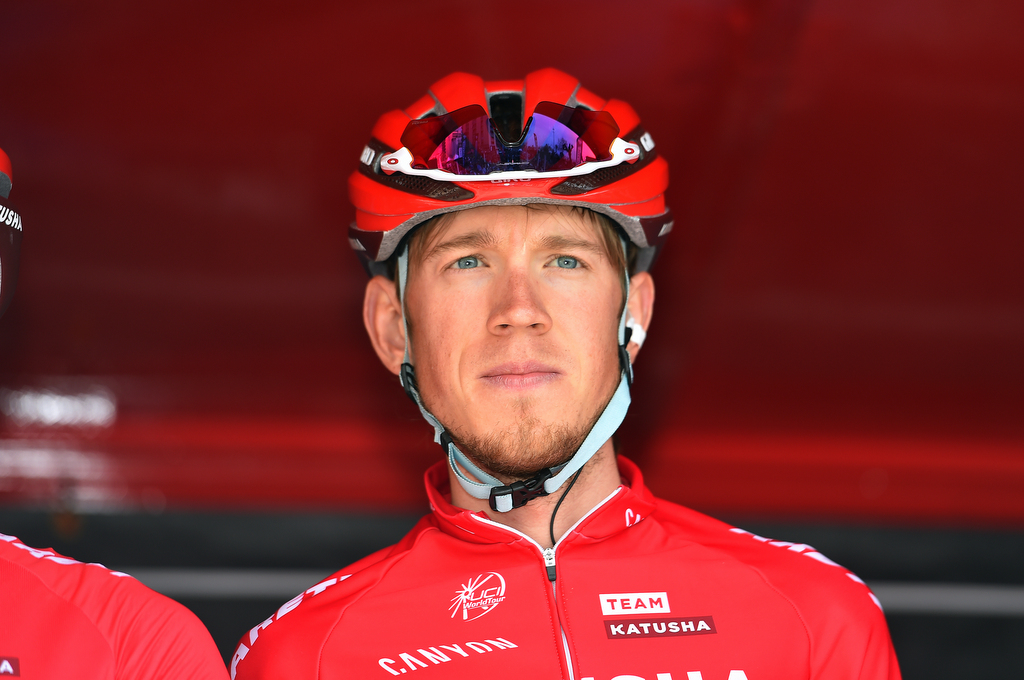
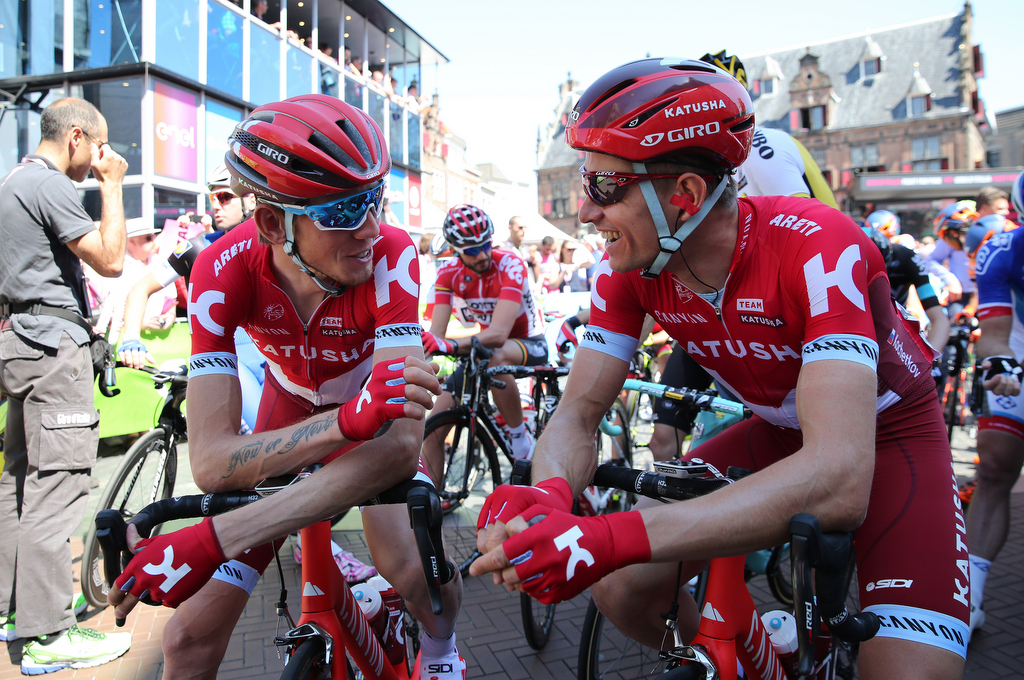
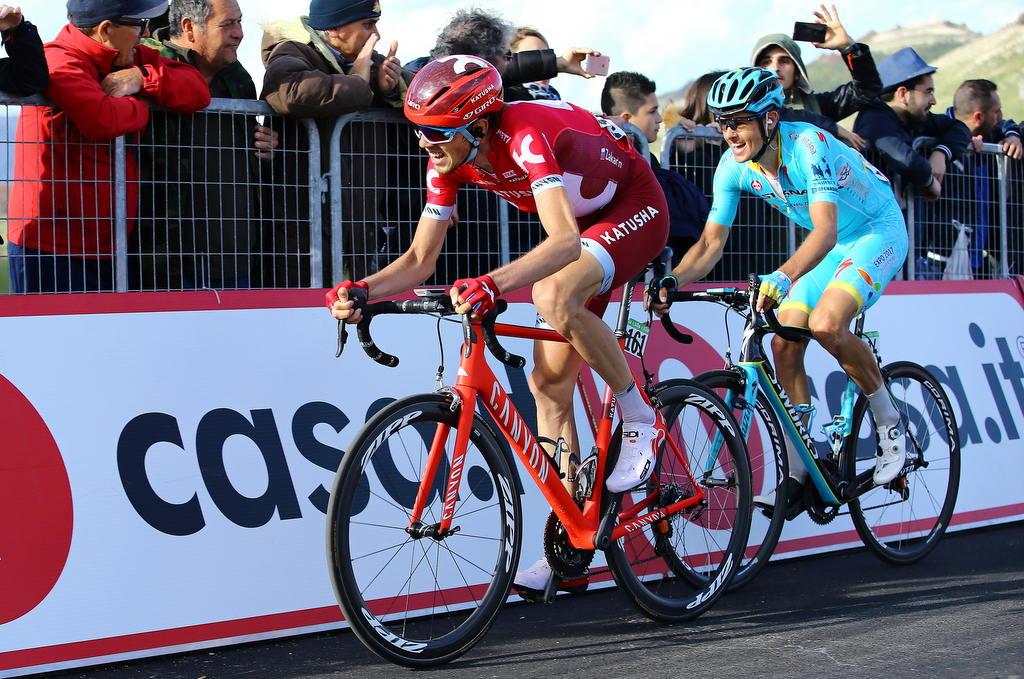
Tom Dumoulin (Giant-Alpecin) and Vincenzo Nibali (Astana) will dominate the morning's headlines, but Ilnur Zakarin (Katusha) quietly underlined his intentions for this Giro d'Italia with an assured performance on the first mountaintop finish at Roccaraso that saw him place third on the stage and move up to third on general classification.
Giro news shorts: Romandie winner Zakarin to race Italian Grand Tour for experience
Giro d'Italia stage 11: Zakarin motors to win on F1 track in Imola
Profile: Who is Ilnur Zakarin?
Zakarin prepares to co-lead Katusha at Giro d'Italia in 2016
Zakarin soars to Paris-Nice Queen Stage win
Tour de Romandie: Quintana wins stage 2 in Morgins after Zakarin relegated
Zakarin disagrees with relegation in Tour de Romandie stage 2 finish
The Russian followed the pink jersey Dumoulin when he attacked three kilometres from the summit and, together with Domenico Pozzovivo (AG2R-La Mondiale) and earlier escapee Jakob Fuglsang (Astana), they gained time on all of the other podium contenders on the final haul to the line.
"At the beginning of the final climb I did not feel so good. There was a strong wind, but Pavel Kochetkov protected me and later on I started to feel better," said Zakarin, who now lies 28 seconds off the maglia rosa.
Zakarin was one of the revelations of the 2015 season when he claimed overall victory at the Tour de Romandie and soloed to Giro stage victory in Imola during his first campaign at WorldTour level, and he has been a model of consistency thus far in 2016, placing 4th at Paris-Nice, 7th at the Volta a Catalunya, 5th at Liège-Bastogne-Liège and 4th at the Tour de Romandie.
- Profile: Who is Ilnur Zakarin?
- Zakarin prepares to co-lead Katusha at Giro d'Italia in 2016
- Zakarin soars to Paris-Nice Queen Stage win
- Zakarin wins Tour de Romandie
- 2015 Giro d'Italia stage 11: Zakarin motors to win on F1 track in Imola
Although this Giro is just the second Grand Tour of Zakarin's career, the 26-year-old was identified as a danger man by Nibali in the build-up to the race, and he has done little to dispel the notion in an opening week where he has scarcely put a pedal stroke out of place, even landing on the right side of the split on the road to Benevento on stage 5.
Zakarin's strong showing in the final days of last year's Giro, where he finished 44th overall, seemed to indicate his aptitude for the rigours of three-week racing, though Katusha directeur sportif Dimitri Konyshev has preached caution when assessing his rider's chances.
Get The Leadout Newsletter
The latest race content, interviews, features, reviews and expert buying guides, direct to your inbox!
"Last year we just aimed for stages with Ilnur and that's very different to doing GC. To ride for the overall you have to be switched on and focus every day for three weeks," Konyshev told Cyclingnews.
"We'll see if he's able to keep this concentration for the whole Giro, because apart from the time trial [in Chianti on Sunday], this race will be decided entirely in the last three or four days. His condition is excellent at the moment but there are still more than two weeks to go."
Konyshev also warned that Zakarin's record in shorter stage races, though a useful barometer of his ability, is no guarantee that he will be able to maintain his Giro challenge for three whole weeks. "We've seen in the one-week races that he can keep his concentration and his condition, but a Grand Tour is something else. It's a step up to another level. We'll see over the next three weeks," he said. "I'm curious to see for myself."
Leader
For all his success over the past year and a half at WorldTour level, Zakarin retains a low media profile, and slipped almost unnoticed through the finish area at Roccaraso on Thursday as television crews and reporters swarmed around Dumoulin, Nibali, Valverde et al. That is in part because Zakarin prefers to be interviewed in his native Russian, though he has no communication problems within his Katusha team.
Konyshev was part of the wave of Russian riders who enjoyed success in the professional peloton in the 1990s following the collapse of the Iron Curtain, a generation whose high water came, perhaps, with the Giro victories of Evgeni Berzin in 1994 and Pavel Tonkov in 1996. Zakarin, he said, resembled neither man, and has more in common with Russia's most recent Giro winner, Denis Menchov, the 2009 champion who later received a two-year ban for biological passport violations at the end of his career.
"He's relaxed and calm, just like Menchov," he said of Zakarin, who hails from Naberezhnye Chelny in Tatarstan, but lives and trains in Cyprus during the season.
"He's very strong in his head, you can see from the way he prepares. He has the mentality of a champion."
Doping ban
A European champion time trial champion as a junior, Zakarin had scarcely entered the senior ranks before he tested positive for the anabolic steroid methandienone, and he was handed a two-year suspension in the summer of 2009.
Following the expiry of his ban in 2011, Zakarin was seemingly rehabilitated by the so-called Russian Global Cycling Project when he joined the Itera Continental team, and he then progressed further through the ranks by spending two seasons at RusVelo before stepping up to WorldTour level at Katusha last year.
Zakarin's doping ban was, understandably, a key element in most accounts of his victories at the Tour de Romandie and Giro last year, though Konyshev argued that his rider ought not to bear a scarlet letter indefinitely for an offence that took place when he was a teenager.
"I'll tell you something that nobody's written before now, but he was advised by a guy from another sport who told him to take this product to make him strong. He was young and stupid and he took it," Konyshev said. "When he was caught, he was asked who had advised him but he didn't want to say and he took the full ban. It was stupid and it's not nice that it's always brought up.
"He assumed his responsibilities and took the ban and didn't blame anyone else. That showed he was a man, and not a coward."

Barry Ryan was Head of Features at Cyclingnews. He has covered professional cycling since 2010, reporting from the Tour de France, Giro d’Italia and events from Argentina to Japan. His writing has appeared in The Independent, Procycling and Cycling Plus. He is the author of The Ascent: Sean Kelly, Stephen Roche and the Rise of Irish Cycling’s Golden Generation, published by Gill Books.